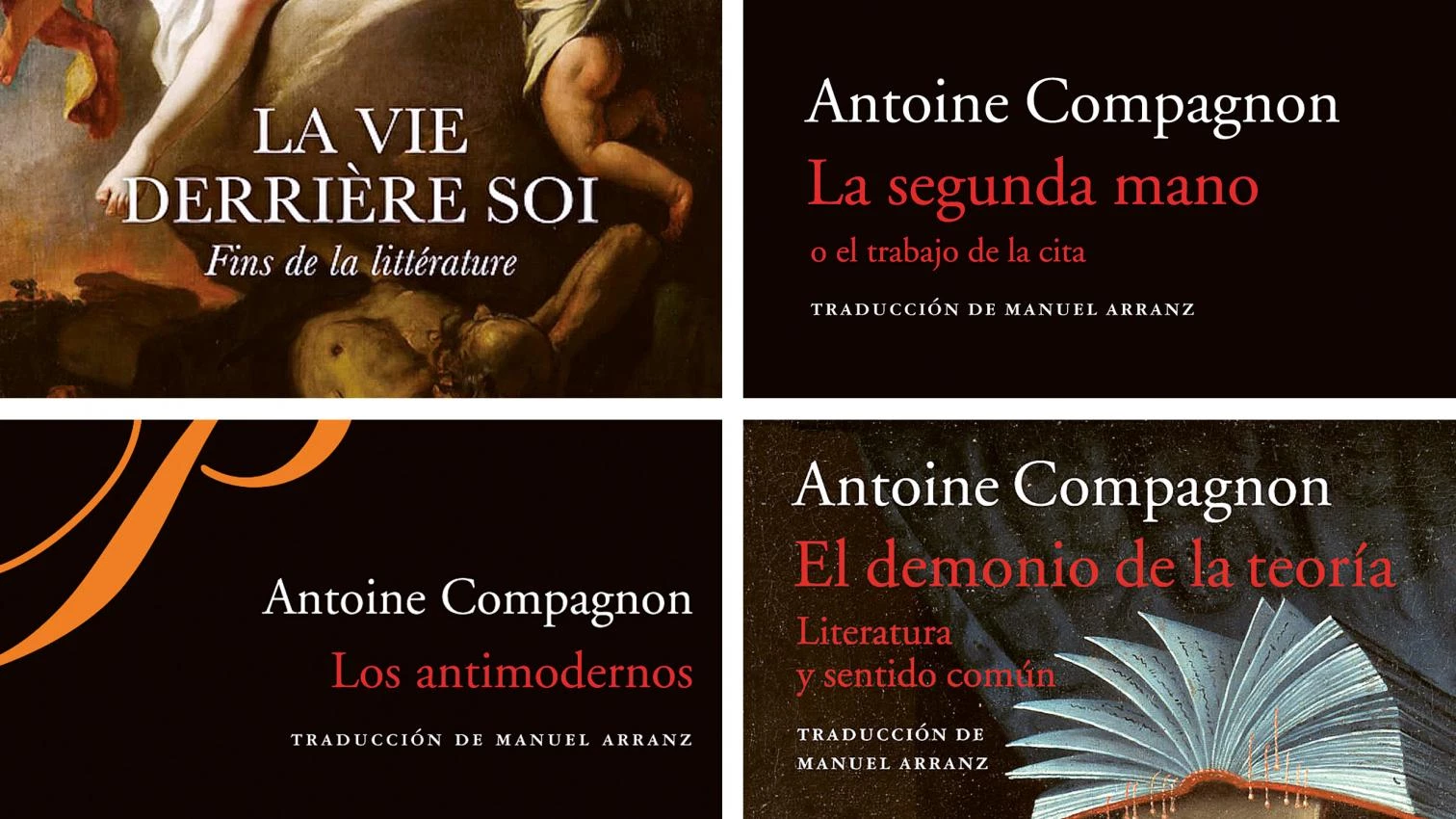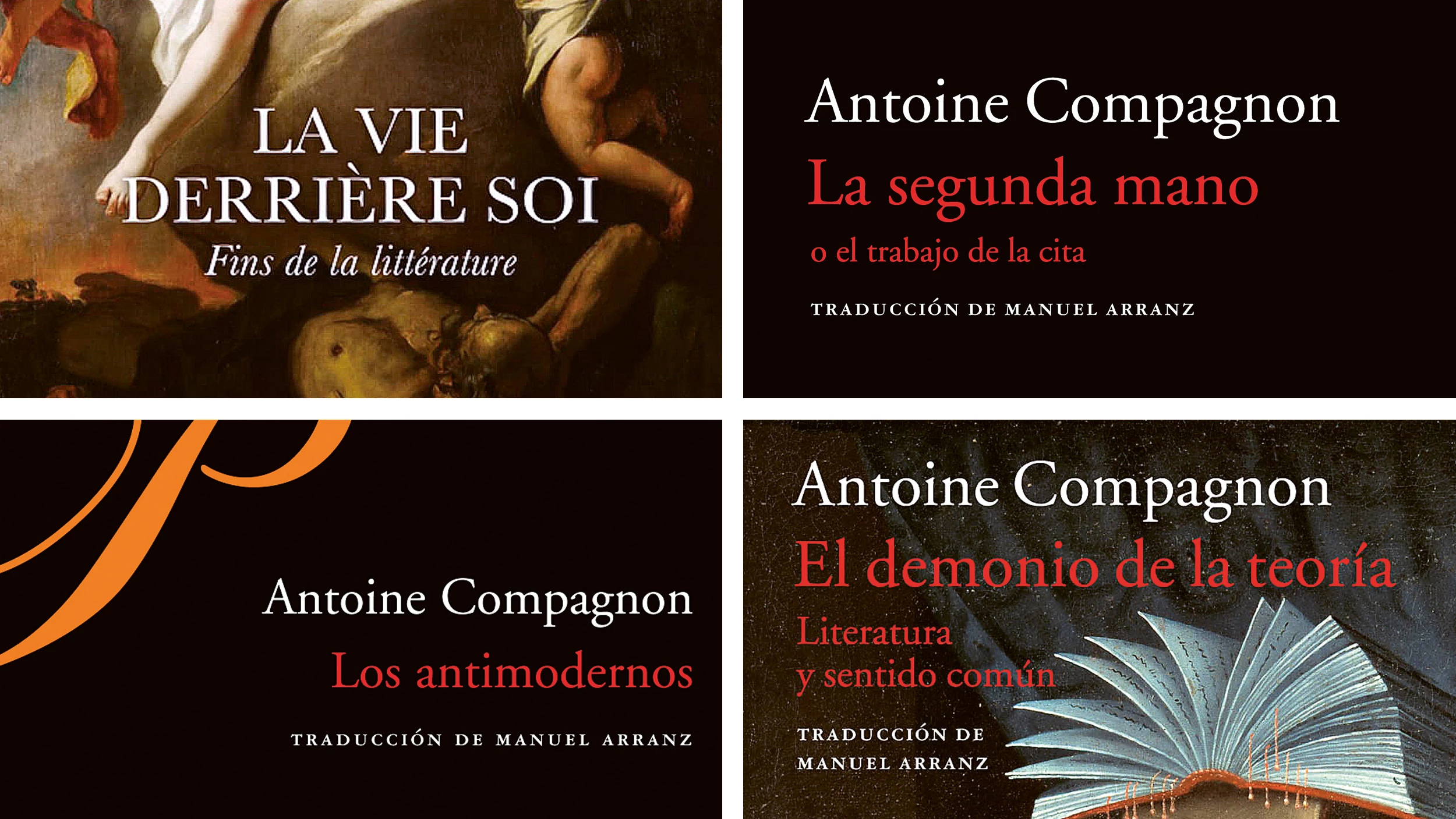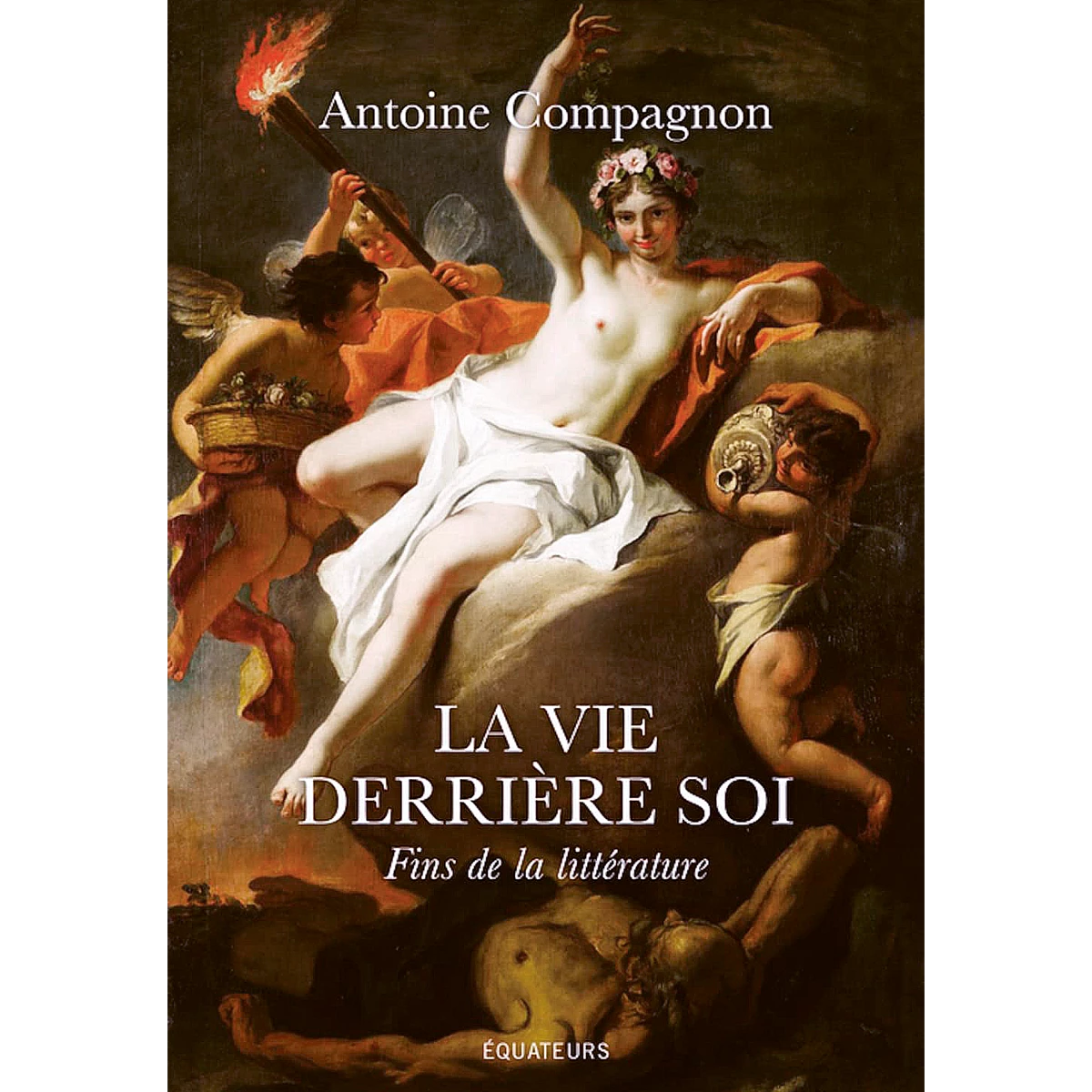
The critic Antoine Compagnon is one of the great living humanists, and after the death of Bloom, Steiner, and Fumaroli, remains as one of those who have most eloquently explored and reinvigorated the heritage of Western culture. In a review of a book by Linazasoro – ‘La modernidad otra,’ Arquitectura Viva 243 – I stressed his intellectual debt to a work of the French critic, Les antimodernes (2005), but any approach to Compagnon’s thought should perhaps start with his most popular work, La seconde main ou le travail de la citation (1979), which was originally a doctoral dissertation directed by Julia Kristeva, when the author was still an engineer attracted to literature. His academic advisor had interpreted Mikhail Bakhtin’s ‘dialogism’ as ‘intertextuality,’ and Barthes at the time said that every text is a ‘mosaic of quotations,’ and so it was that Compagnon drew inspiration from a line of his admired Montaigne, “We do nothing but comment upon one another,” in tackling this painstaking and exemplary text.
That book came about in an intellectual climate dominated by theory, but its author already then showed a skeptical detachment from this mood, which he crystallized in Le demon de la théorie (1998), a dazzling work that explores literary theory from Saussure or Jakobson to Foucault or Derrida to demand that their methods be contrasted with the often ignored common sense. The son of a general and equipped with a military and polytechnic training, he ended up pursuing a literary and academic path, and became a professor at Columbia University and the Sorbonne, ending his teaching life at the Collège de France, where he taught from 2005 to 2020. He devoted his last school year there to the final stage of literary lives, motivated as he was by his own retirement and by the loss of his life partner, and this melancholy exploration went into the book La vie derrière soi. Fins de la littérature (2021), where the late work so frequently addressed in the case of painters or musicians – who are more affected by the physical decline that affects our eyesight, hearing, or hands – is extended to the writers he was closest to, from Chateaubriand or Baudelaire to Valéry, Gide, or Proust.










